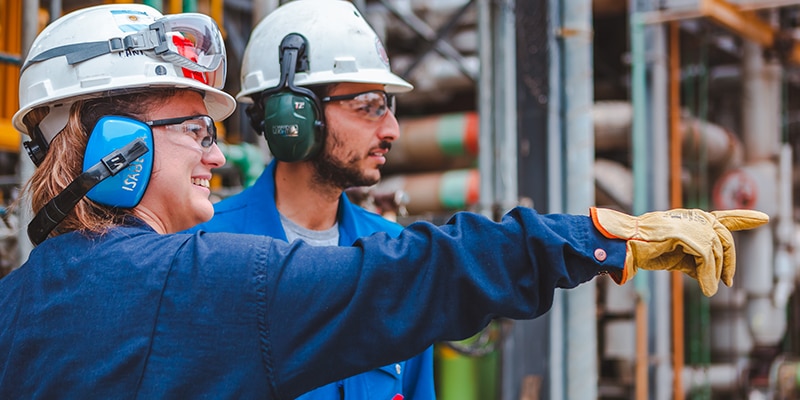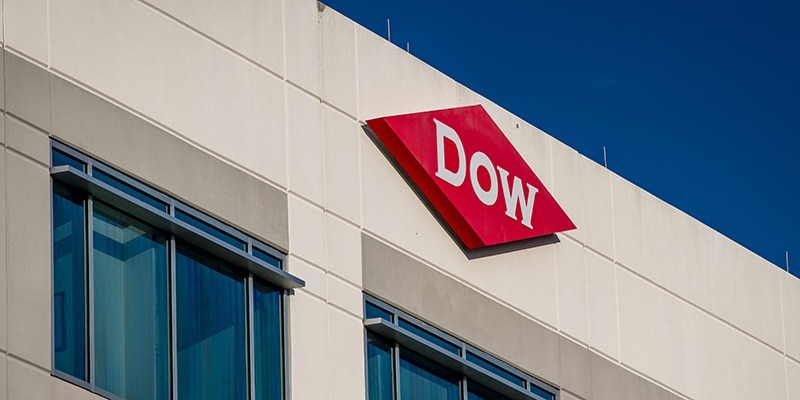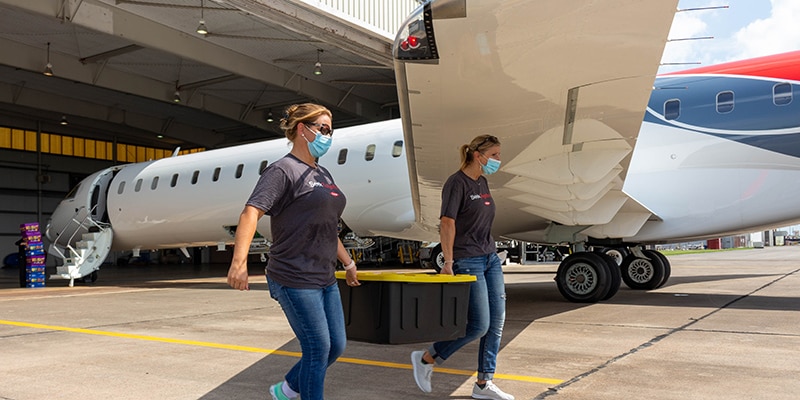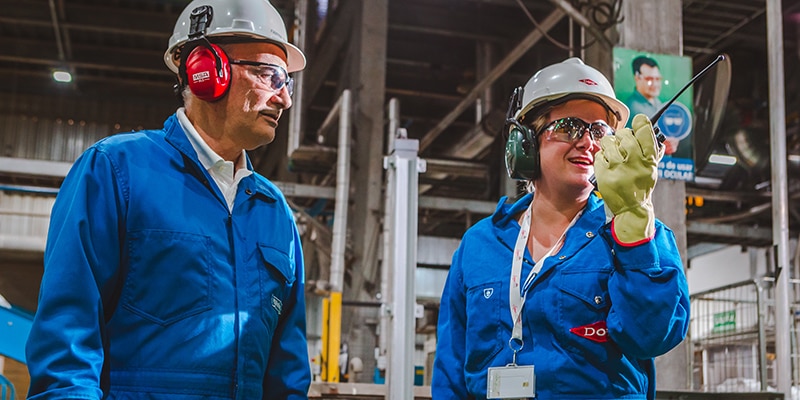Dow West Virginia Operations
Dow in the Community
West Virginia Operations has supported the quality of life in the Kanawha Valley area for more than 100 years. Through the volunteer work of its employees, retirees, and friends, annual donations and contributions to local non-profit organizations, and collaboration with its Community Advisory Panel, Dow strives to be recognized as an excellent community partner and industrial neighbor.
West Virginia Operations (WVO) is owned by Union Carbide Corporation, a subsidiary of The Dow Chemical Company. "Dow," as used throughout this website, often refers generically to The Dow Chemical Company and its consolidated subsidiaries.
West Virginia Operations includes the South Charleston Site, the West Virginia Regional Technology Park, where we are a tenant, and tenant operations in Institute at a site that is owned and operated by Altivia.
Learn more...
About Us
The chemical industry has brought stability and economic growth to West Virginia. Union Carbide Corporation, a wholly-owned subsidiary of The Dow Chemical Company, has become a part of the community and has an abiding respect for the hard work, honesty and genuine friendship for which West Virginians are known.
Union Carbide became a subsidiary of Dow through an acquisition on February 6, 2001. Dow (NYSE: DOW) is one of the world’s leading materials science companies, serving customers in high-growth markets such as packaging, infrastructure, mobility and consumer applications. Our global breadth, asset integration and scale, focused innovation, leading business positions and commitment to sustainability enable us to achieve profitable growth and help deliver a sustainable future. We operate manufacturing sites in 30 countries and employ approximately 36,000 people. Dow delivered sales of approximately $43 billion in 2024. References to Dow or the Company mean Dow Inc. and its subsidiaries. Learn more about us and our ambition to be the most innovative, customer-centric, inclusive and sustainable materials science company in the world by visiting www.dow.com.
West Virginia Operations includes the South Charleston Site, the West Virginia Regional Technology Park and operations in Institute at a site that is owned and operated by Altivia.
What We Do
WVO possesses some of the industry's most advanced process and catalyst technologies, and operates some of the most cost-efficient, large-scale production facilities in the world.
WVO primarily produces chemicals and polymers that undergo one or more further conversions by customers before reaching consumers. Some of these materials are high-volume commodities, while others are specialty products meeting the needs of smaller market niches. The end-uses served include paints and coatings, packaging, household products, personal care, pharmaceuticals, automotive, and oil and gas.
Our History
A new chapter in the history of West Virginia Operations began when Union Carbide Corporation became a wholly-owned subsidiary of The Dow Chemical Company in 2001. The company’s past has laid the foundation for WVO’s success.
The world's first petrochemical plant was constructed by Union Carbide Corporation in 1920 at Clendenin, West Virginia. By 1925, the manufacture of chemicals had grown to the point that another plant was leased (later purchased), and the Clendenin operation and personnel were moved to the new location at South Charleston, West Virginia.
The research, development, and production experience at Clendenin paved the way for the growth of the South Charleston Site that occupies Blaine Island and extends across the Kanawha River into Charleston. Many of the plant's current product lines were developed and first produced at the South Charleston Site. They were later moved to other plants when increased production capacity became necessary. Major corporate products were produced at the plant and over time, other major technological advances developed here including olefin gas separation techniques and vinyls technology. Other major technological advances developed here including olefin gas separation techniques and vinyls technology.To enhance business development the Technical Center became an open campus in 2003 and is now known as the WV Regional Technology Park. The South Charleston Technical Center’s first research laboratory was officially dedicated in 1949. Prior to that time, research and development for petrochemicals and plastics were performed at the South Charleston Site. In 1959, with the addition of two large development laboratories and an engineering building, the facility became a full-scale Technical Center. Then, in 1977, a large data processing building was constructed and placed in operation.
The Institute Site was originally built in 1943 as a government facility for production of synthetic rubber for the war effort. In 1947, Union Carbide purchased the plant from the government to produce commodity-type products. Over the years, the make-up of the plant has changed from production of commodity chemicals to specialty chemicals.
In December 1986, the plant was sold to a French chemical manufacturer, Rhone-Poulenc. The plant was later purchased by Aventis CropScience, under agreement that the plant would share certain facilities. In 1990, the Polyols Unit of the plant was sold to ARCO Chemical. Today, the plant is owned by Altivia who owns the plant site proper, the general facilities and the agricultural producing units at Institute. Thus, Union Carbide is now a tenant at the site.
Historical Timeline
1920: Union Carbide Corporation makes history by constructing the world’s first petrochemical plant in Clendenin, WV.
1925: Clendenin operation and personnel were moved to the new location at South Charleston, WV as the manufacture of chemicals had grown to the point that another plant was leased (later purchased).
1943: The Institute Site is built as a government facility for synthetic rubber production during WWII.
1947: Union Carbide purchased the Institute plant from the government to produce commodity-type products. Over the years, the make-up of the plant has changed from production of commodity chemicals to specialty chemicals.
1949: The South Charleston Technical Center’s first research laboratory was officially dedicated in 1949. Prior to that time, research and development for petrochemicals and plastics were performed at the South Charleston Site.
1959: The facility became a full-scale Technical Center with the addition of two large development laboratories and an engineering building,
1977: A large data processing building was constructed and placed in operation at the South Charleston Technical Center.
1986: The Institute plant was sold to a French chemical manufacturer, Rhone-Poulenc. The plant was later purchased by Aventis CropScience, under agreements that the plant would share certain facilities.
1990: The Polyols Unit of the plant was sold to ARCO Chemical. After many owners, the Institute site is owned today by Altivia.
2001: Union Carbide Corporation becomes a wholly-owned subsidiary of The Dow Chemical Company.
2003: The South Charleston Technical Center becomes an open campus, now known as the West Virginia Regional Technology Park.

Dow West Virginia Operations
We have seen time and again that by listening and collaborating, we can discover the solutions for what’s needed next. Whether you partner with us, work at Dow, or experience our materials in your favorite brands, we are relentlessly working to make the world and this community better.
Our community partnerships and investments are aligned to our company’s ambition and fueled by volunteer service. We strive to actively apply our innovative technology, employee expertise and culture of inclusion to drive our citizenship priorities and investments forward, generating transformational social impact in Virginia and around the world.
Communities We Support
In West Virginia, Dow emphasizes partnerships that serve communities where Dow employees live and work, including, but not limited to Cabell, Kanawha and Putnam counties.
Commitment and Priority Areas
Aligned to Dow's ambition, our enhanced Global Citizenship strategy, launched in 2024, supports an innovative, sustainable, and inclusive future where our communities can thrive, everyone has equitable access to STEM & skilled trades careers, and our employees are empowered to accelerate change.
Thriving Communities
We address community-identified needs and support disaster resiliency & response while advancing equitable opportunities in the communities in which Dow operates. Opportunities include:
- Help individuals access immediate, basic needs and environments that are inclusive, healthy and safe so all can thrive
- Reduce the impact of disasters and humanitarian crises affecting Dow communities and colleagues
- Advance long-term, community change through breakthrough solutions and collaborations
STEM & Skilled Trades
We work to build and diversify STEM & skilled trade education pipelines and connect students with innovation-based jobs, with an emphasis on underrepresented populations and youth. Opportunities include:
- Connect students to post-secondary careers in STEM & skilled trades
- Expand access to quality STEM and skilled trades secondary education
- Expand and diversify STEM primary education teacher pipelines
Sustainability
We promote circularity, decarbonization, water stewardship and healthy ecosystems with a focus on communities that experience disproportionate environmental risks and burdens. Opportunities include:
- Foster efficient circular systems, with an emphasis on waste collection and management infrastructure
- Advance water stewardship and habitat conservation
Additionally, we believe, whether through the dedication of time, talent or expertise, that volunteering promotes a positive employee experience, further supports the global citizenship priorities and investments, and, ultimately, advances Dow’s ambition.

How to Partner
Employee Volunteers
- Share your volunteer needs: click here
Community Grants
- Submission Deadlines: February 27, May 29, September 15, 2026 by 5.pm. EST.
- Eligibility: review FAQ
- All grant applicants should apply for a site grant using the following link: https://www.cybergrants.com/dow/naasiteopen2026
Frequently asked questions
Who do you support?
- Applicants must adhere to the company’s non-discrimination policy and be a charitable or non-profit organization with a 501(c)3 designation or eligible government or school with required tax documentation. Note – faith-based organizations may qualify, provided their proposed project is for the benefit of the community as a whole rather than just the members of the congregation.
- Organizations who serve and are based in communities where Dow employees live and work.
- Examples of charitable organizations and/or activities that would not qualify for funding include:
- Proposals submitted by for-profit businesses, religious organizations for the sole benefit of the organization, individual sports teams, political organizations or candidates, labor unions, homeowners' associations, or individuals.
- Operating expenses, personal computers, travel expenses, conferences, advertising, fundraising events, walks or runs, giveaways or prizes, individual scholarships, dues and memberships, lobbying expenses or capital campaigns.
What is the application process and timing?
In 2026, community grant proposals will be reviewed three times during the year. For organizations to meet the appropriate review deadlines, proposals should be submitted prior to:
- Spring cycle:
- Proposal Deadline: Submit by February 27
- Notifications: Early June
- Summer cycle:
- Proposal Deadline: Submit by May 29
- Notification: Early September
- Fall cycle:
- Proposal Deadline: Submit by September 15
- Notifications: Early November
How do I log in to apply?
Nonprofits who have accessed Dow’s online grant application for previous grant requests should use their existing login credentials. If you have difficulty remembering your password, a password reset link is available on the login page.
If you have not previously accessed Dow’s online grant application for prior grant requests, please email Dow’s Global Contributions Team with the following information:
- Nonprofit name:
- Nonprofit tax ID:
- Applicant first/last name:
- Applicant email address:
I am having technical difficulties with the grant application, who should I contact?
Please contact Dow’s Global Contributions Team.





